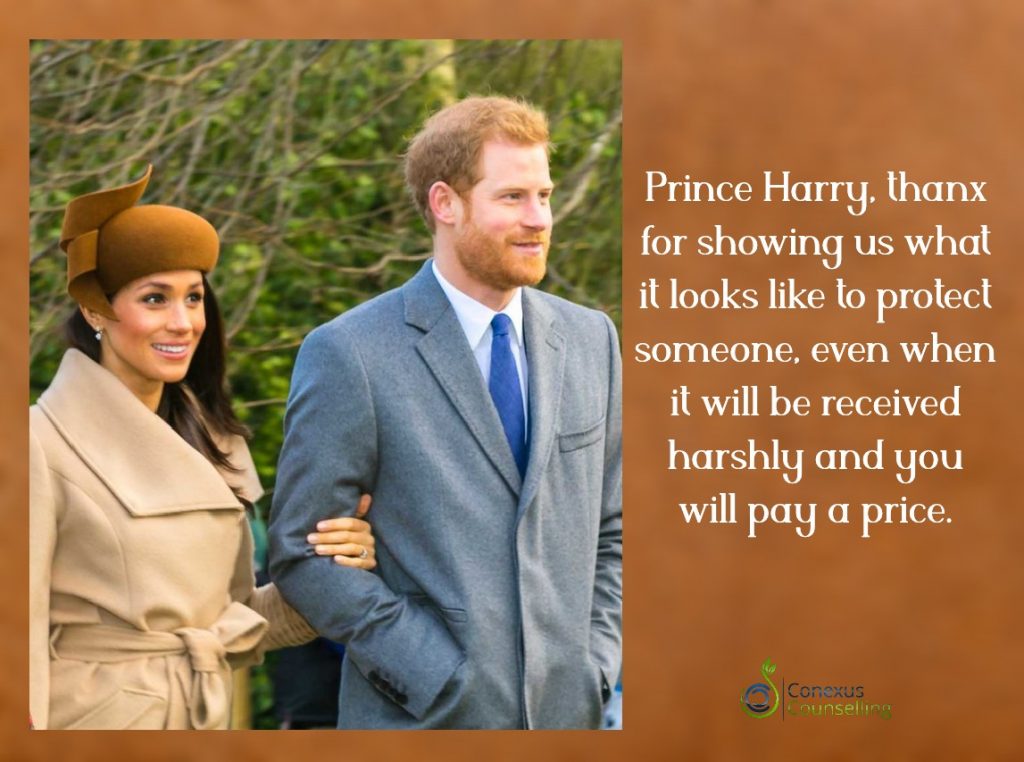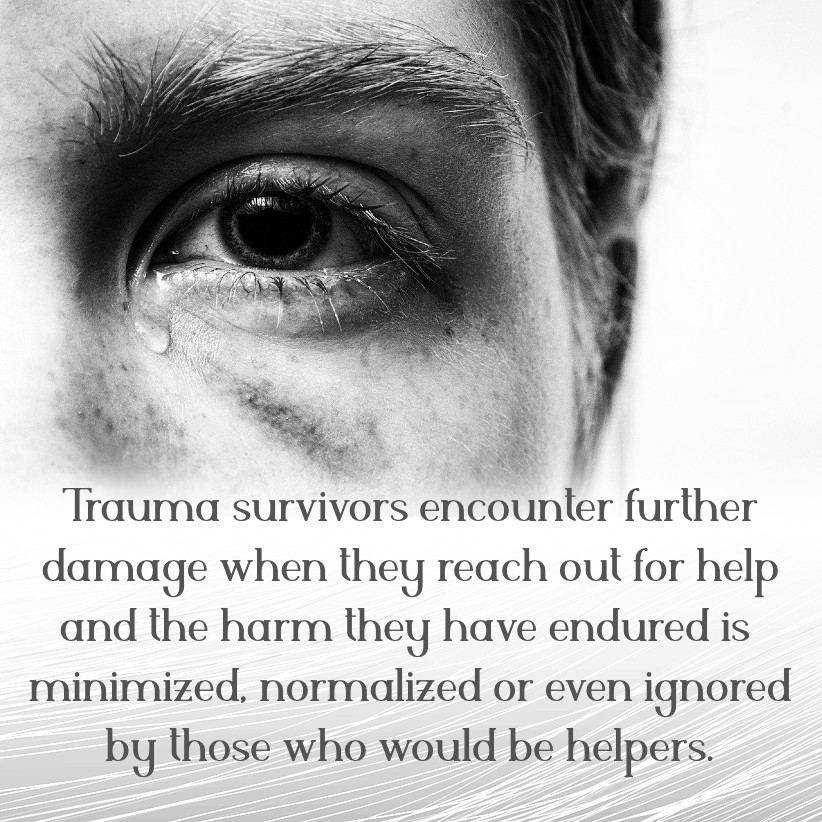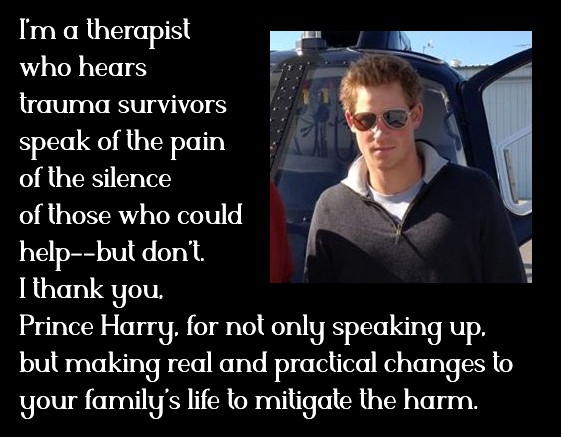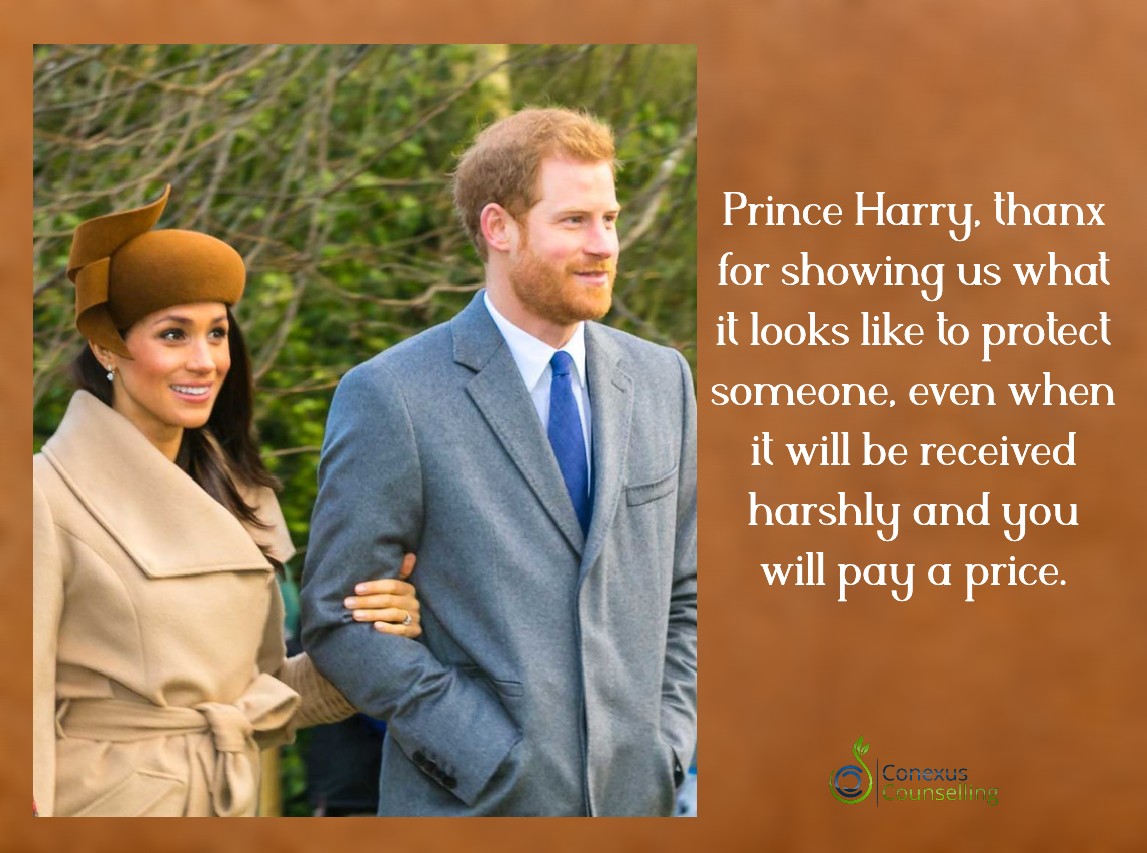Dear Prince Harry,
To start off, if you might ever come across this therapist’s blog and only read one line, may it be this:
Prince Harry, thank you
Let me explain my gratitude.
You have spoken up bravely in a very unpopular and unprecedented way to forge a new path. Prince Harry, you have opened yourself up to criticism. You have made yourself open to ridicule and judgement from those looking to be critical.
And all of it in a most public way.
You did this to do what is right for the people you care about. You are looking after your family even though you are upsetting others.
You are putting what is right for you and for your family first.
You are willing to let the haters hate, and the criticizers criticize.
You are doing what works for the people that matter to you most even though it won’t be comfortable or convenient for many, many others.
That was brave. And it is valued. It models so much to so many.
You have, on more than one occasion, been clear to the British press to back off. You have watched the media be cruel to your wife and you have told them to stop. You have been clear to the extended family that you are wanting to establish a meaningful life for your little family.
When your sincere and clear efforts to be heard weren’t met with responsive action to your words, you and Meghan did what was necessary to ensure to get what you’ve always wanted: a way to live well.

I am a therapist that works with people who have survived trauma. Trauma survivors become survivors when they experience trauma–very difficult experiences that have them feel helpless and endangered. So often, the real wounding for trauma survivors is that their pain is minimized, normalized or even ignored by those who would seem to be the ones to be helpers.

This week, you spoke out, Prince Harry. You spoke against the harm that has been done to you in a proactively and decisively manner. You shook up the very monarchy of England, with its centuries of history, in a desire to protect your wife and yourself. You put Meghan first.
You watched her get mocked and pilloried. You read the not-so-subtle racist attacks on her because of her ethnicity. You watched how people decided who she was without ever having met her.
You saw how cruel and dishonest people were to her and you didn’t let it slide.
You stood up and spoke up even though it ruffled many people’s feathers. You did for her what you could not have done for your mother.
That’s a big deal.
I spoke at a conference earlier this year, and this is part of what I said:
In therapy, when I explore the trauma a survivor has, the most important question is not, “What happened?” (Telling the story is often very retraumatizing, so that generally doesn’t come up for a looong time in therapy)
The most useful question I have found, clinically, is actually: “Who did you tell and what did they do after you told them?” In my experience the response to this question has a whole lot more relevance to an abuse survivor’s well being. The people that say things like, “When I told so and so, they stayed with me. They called the police. My parents got me a counsellor. If I needed someone to sleep with me, they did. I was protected. I never had to see the person who harmed me again.”
When a person has an experience of being taken seriously, receives solid support, with swift and clear action to keep them safe—well, often they don’t even come into therapy with problems about the abuse. The history of abuse comes out almost tangentially, in passing as they talk about why they have really come. The trauma mattered, but it often doesn’t hijack their life when they have had good support.
The ones who are very affected by their trauma, even decades later, are the ones tend to tell variations of one or two stories. The first story: “When I told someone, they shushed me, told me I was making it up, I misunderstood, it was no big deal, what was the fuss, be quiet and never speak of it again.” Those survivors were left to deal with it on their own. The actions of others said that the harm didn’t matter—maybe they didn’t matter. The message was clear: they wouldn’t be protected, the harm was no big deal. The pain of the individual is not dealt with for the convenience of others.
It’s crazy making when something happens that feels really awful, and the people around you tell you that it’s no big deal. People learn to hide their wounds…victims wonder what they did to make it happen, why no one will protect them.
The second story that people will tell me is this: “I didn’t tell anyone. There was no point.” This is an even more hopeless, discouraging version of the story than the first. They instinctively know there is no point to disclosing…and they save themselves the harm of disappointment.
Carolyn Klassen, at the #churchtoo conference
Prince Harry, one of the reasons why what you did together with your wife this week is so important is that our neighbors to the south of Canada are actively supporting their leader.
The American president:
- plays dirty and denies he plays dirty with the Ukranian government
- makes fun of people
- says one thing and does another
- dismisses hard science about climate change to say whatever works for him
- engages in behaviour that is harmful to his family, covers it up, and then lies about the cover up
- keeps the fact checkers busy with all the ways he lies, misleads, presents alternative truth etc.
The American leadership crisis is not hard for many trauma survivors because the person at the top is doing bad things.
The hardest part of American politics for the trauma survivors around the world is that supposedly good people who have committed their lives to public service look the other way.
There are many in the president’s circle that not only pretend it doesn’t matter, they deny it is happening. They throw people being harmed under the bus and all the while, pretend it’s not happening. They watch him lie, and then use extensive word salad to cover up for him.
The President’s supporter’s support of him is crazy making. It’s gas lighting.
And that is re-traumatizing for trauma survivors to watch. Their own secondary abuse is being re-created on the global stage for us all to experience.
So many support President Trump because it would be inconvenient to speak up. Their re-election would be in jeopardy. They would lose the approval and the ear of the president. They allow detained immigrants, Americans who need healthcare or food stamps, foreign governments relying on US aid, victims of horrific climate events that are increasing in frequency and intensity to pay the price for their ardent support of an abuser.
So, as a therapist who hears trauma survivors speak of the pain of the silence of those who could help I thank you, Prince Harry, for not only speaking up, but making visible and practical changes to your family’s life to mitigate the harm.

For those who have been hurt and when they reached out for support that didn’t push through for change that ultimately created safety–I thank you for doing what was necessary when your earlier attempts to create safety didn’t receive a satisfactory response.
For all those who have been hurt and everybody said, “What’s the big deal? Why is she so sensitive?” I thank you for knowing and seeing that it was a big deal and taking action.
For those who were hurt by people in power and it would have required making powerful people uncomfortable and angry and they would try to push you back into the silent box that works for them and the public fallout would have been significant–we thank you for being aware of all of it, and being brave to do it anyway.
Trauma survivors around the world thank you, Prince Harry.
We wish you, Meghan and sweet Archie well as you create the life that you know to align with who you are.







Write a Comment